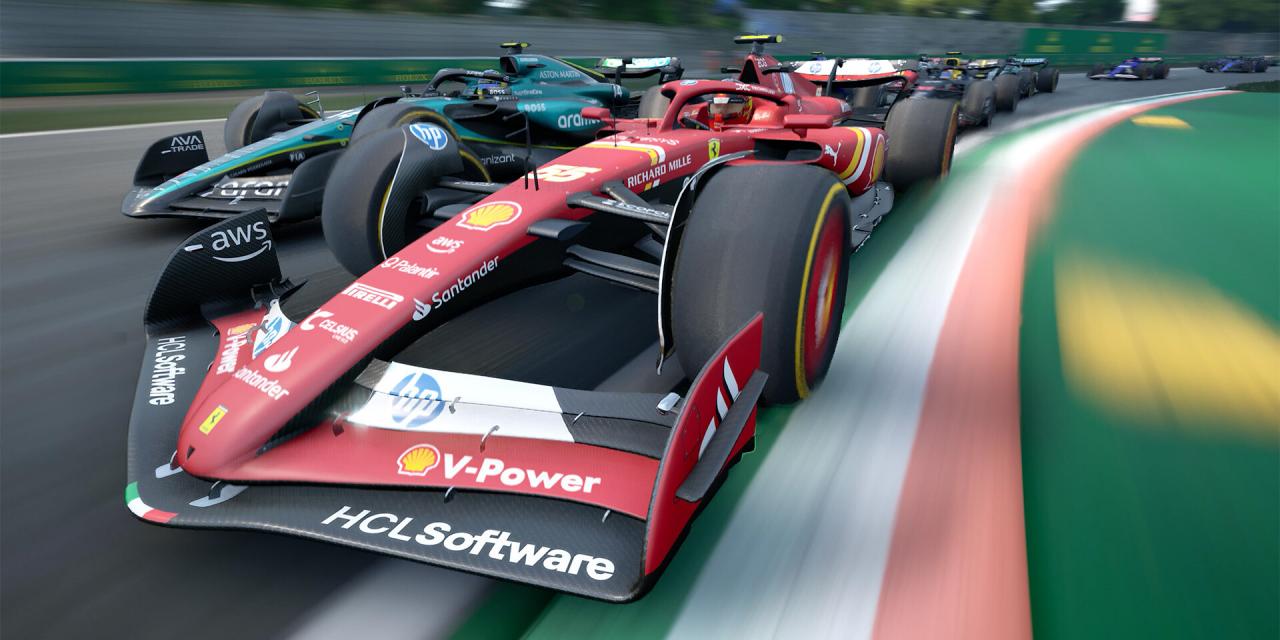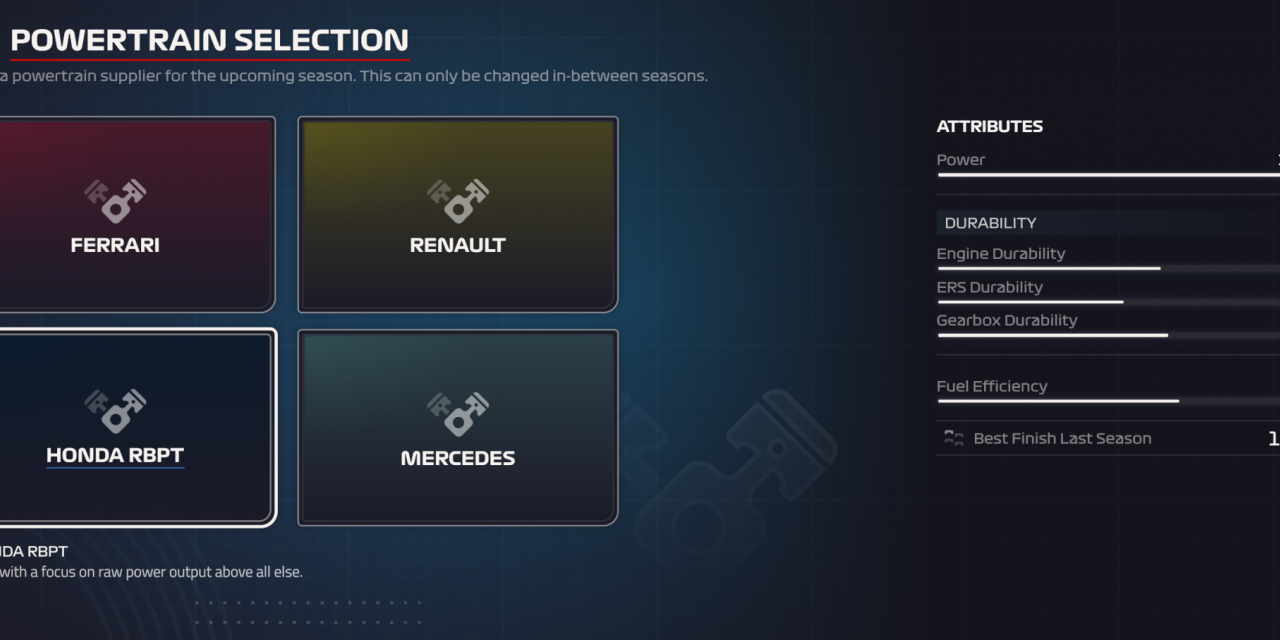




Choosing the right powertrain/engine in F1 Manager 2024 is like picking the right tool for a job. Each engine has its strengths and weaknesses, and knowing these can help you tailor your strategy for victory. Let’s explore the specifics of each engine option to help you make the best engine choice for your racing team.
RBPT: The Powerhouse

Advantages:
- Raw Power: The RBPT engine is a beast on the track. It delivers unmatched horsepower, giving you a significant edge in straight-line speed.
Disadvantages:
- Fuel Efficiency: This engine is not fuel-friendly. It burns through fuel quickly, which can affect your race strategy and pit stops.
- Performance Drop-off: The RBPT engine tends to lose its peak performance earlier than other engines. This means you’ll need to replace it more frequently, impacting your budget.
Strategy:
With the RBPT engine, you’ll dominate on tracks with long straights and high-speed corners. Focus on maximizing your acceleration out of corners and overtaking on straight sections. However, be prepared to manage frequent engine replacements and higher fuel consumption. This engine is perfect for aggressive drivers who don’t mind spending extra on maintenance to stay ahead of the competition.
Ferrari: The All-Rounder

Advantages:
- Versatility: The Ferrari engine is a jack of all trades. It offers a balanced performance across various aspects, making it suitable for a wide range of tracks.
Disadvantages:
- Master of None: While versatile, it doesn’t excel in any particular area. You won’t have the highest top speed or the best fuel efficiency.
Strategy:
Ferrari engines are best for consistency. Aim to perform steadily across different race conditions and capitalize on your ability to adapt. Tune your car for agility and balance to make the most out of this engine. While you might not dominate every race, you’ll accumulate points consistently, putting you in a strong position over the season.
Renault: The Efficient Underdog

Advantages:
- Fuel Efficiency: The Renault engine is incredibly efficient, allowing you to carry less fuel and reduce overall car weight.
Disadvantages:
- Middling Power: It doesn’t pack the same punch as other engines, making it less competitive in terms of raw speed.
- Quick Wear: The gearbox, in particular, wears out quickly, requiring careful management to avoid performance drops.
Strategy:
Renault engines require a strategic approach. Focus on optimizing your car’s weight and managing fuel levels to take advantage of the engine’s efficiency. Plan your power usage carefully to avoid straining the gearbox. This engine rewards meticulous planning and precise execution, making it ideal for strategic racers who thrive on managing resources.
Mercedes: The Durable Workhorse

Advantages:
- Durability: Mercedes engines are built to last. They maintain peak performance longer than any other engine, even at lower conditions.
- Slow Wear: The parts wear out more slowly, reducing the need for frequent replacements and saving you money over the season.
Disadvantages:
- Lowest Engine Power: The trade-off for durability is lower engine power, which can result in slower acceleration out of corners.
Strategy:
Mercedes engines are perfect for those who prioritize reliability and endurance. Push your car hard, knowing the engine can handle the stress without significant performance drops. This engine is great for budget-conscious teams who want to avoid frequent part replacements. Utilize your durability to maintain competitive lap times throughout the race, especially on tracks that stress engine longevity.
Choosing the right engine in F1 Manager 2024 depends on your racing style and long-term strategy. The RBPT engine offers raw power for aggressive racing, while the Ferrari engine provides balanced performance for consistent results. The Renault engine demands strategic finesse with its fuel efficiency and the Mercedes engine ensures durability and reliability. Assess your team's needs, and pick the engine that aligns with your racing philosophy.








